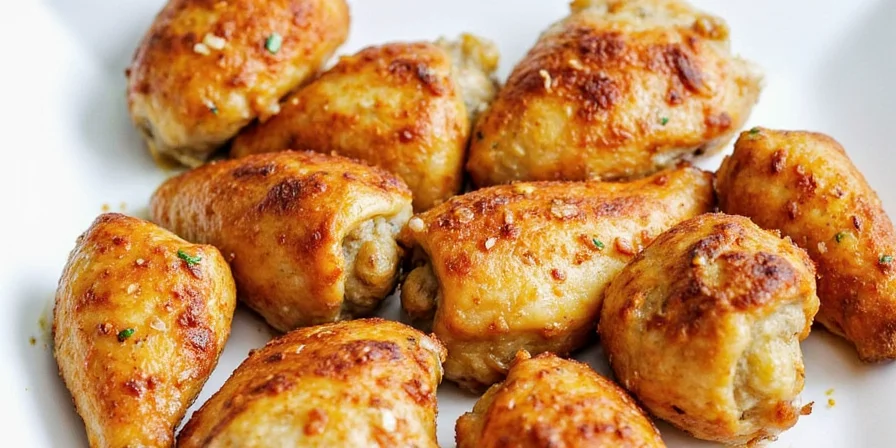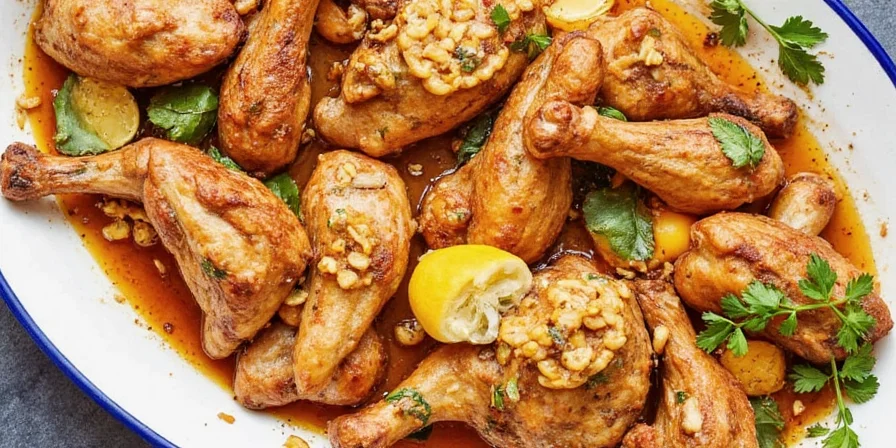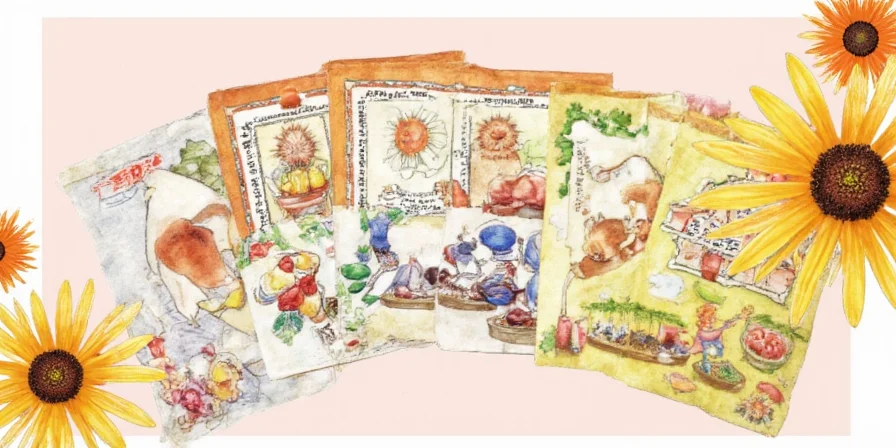10 Unexpected Spice Pairings That Will Transform Your Chicken Dishes Forever
If you've ever found yourself staring into the spice rack, wondering why your chicken always tastes a little too… predictable, it’s time to break out of the bland zone. While salt and pepper are great for everyday cooking, they’re basically the boring office small talk of the spice world. Let’s mix things up a bit!
In this article, we’ll explore 10 innovative spice pairings that take chicken from meh to magnificent. These combos aren’t just random stunts pulled out of a culinary hat—they're rooted in flavor chemistry, cultural traditions, and a sprinkle of chef-level creativity.
Whether you're a home cook who’s tired of the same old recipe or a professional looking for fresh ideas to wow your guests, these spice hacks will become your new kitchen superpowers. So grab your apron, dust off that mortar and pestle, and let’s get spicing!
Table of Contents
- Introduction
- Why Spices Matter in Chicken Dishes
- Top 10 Spice Pairings for Chicken
- Pro Tips: How to Use These Spice Combinations Like a Boss
- The Science Behind Flavor Harmony
- Conclusion
Why Spices Matter in Chicken Dishes
We all know chicken is a blank canvas—versatile, neutral, and ready to soak up any flavor you throw at it. But that versatility can be a double-edged sword. Without the right spices, your dish might taste more like “chicken” than anything else.
Spices do more than just add flavor; they create depth, balance, and complexity. They also have the power to evoke emotions, transport us to different cultures, and even trigger memories. Think about how one whiff of smoked paprika instantly makes you crave Spanish tapas or how cumin in a curry brings the heat and nostalgia of childhood meals.
The Role of Umami and Volatiles
Some spices enhance umami (the fifth taste), while others release volatile compounds that hit your nose before your tongue even knows what’s happening. The right combo activates multiple senses and turns a simple chicken breast into a sensory experience.

Top 10 Spice Pairings That Make Chicken Unforgettable
Here’s the list you’ve been waiting for: our top 10 spice combinations that bring bold, unexpected flavor to your chicken dishes. Each pairing comes with a short explanation and suggested cooking methods to help you make the most of them.
- Cumin + Lime Zest
This dynamic duo adds earthy warmth and bright citrus zing. Perfect for grilled or pan-seared chicken tacos.
- Smoked Paprika + Brown Sugar
A sweet-and-smoky miracle. Try this on roasted or BBQ-style chicken thighs.
- Coriander + Cardamom
An aromatic Middle Eastern or Indian twist. Ideal for slow-cooked stews or biryanis.
- Garam Masala + Cinnamon Stick
Adds a rich, warm backbone. Great for curries, tagines, or braised dishes.
- Fennel Seeds + Orange Zest
Mediterranean magic! Works beautifully in roasted or sautéed chicken dishes.
- Sumac + Za’atar
Tangy and herbal. Sprinkle over grilled chicken or mix into marinades.
- Turmeric + Black Pepper
This antioxidant-rich combo gives golden color and subtle bitterness. Best used in rice dishes or curries.
- Star Anise + Ginger
Earthy and fragrant, ideal for Asian-inspired broths or stir-fries.
- Dill + Mustard Seeds
Herbaceous and slightly sharp. Perfect for poached or baked chicken with creamy sauces.
- Chili Flakes + Garlic Powder
Fiery and garlicky goodness. Excellent for spicy wings, pasta dishes, or skewers.
Quick Reference Table: Chicken & Spice Matchups
| Spice Pairing | Ideal For | Cooking Method | Flavor Profile |
|---|---|---|---|
| Cumin + Lime Zest | Mexican street food | Grilled, Pan-Seared | Earthy + Citrusy |
| Smoked Paprika + Brown Sugar | BBQ, American South | Roasted, Baked | Sweet + Smoky |
| Coriander + Cardamom | Indian, Middle Eastern | Braised, Stewed | Aromatic + Floral |
| Garam Masala + Cinnamon Stick | Curries, Tagines | Slow Cooked, Braised | Warm + Complex |
| Fennel Seeds + Orange Zest | Mediterranean | Roasted, Sautéed | Herbal + Bright |
Pro Tips: How to Use These Spice Combinations Like a Boss
You’ve got the list—but how do you actually use these spices without ending up with a bland mess or an overpowering explosion of flavors? Here are some pro tricks to level up your game:
- Dry Rubs Rule: Combine the spices with a bit of oil or yogurt to form a paste. Massage it into the chicken and let it rest for at least 30 minutes before cooking. This allows the flavors to penetrate deeply.
- Toasting = Flavor Boost: Toast whole spices like fennel seeds or mustard seeds in a dry pan before grinding. This unlocks their essential oils and intensifies the aroma.
- Balancing Act: If using strong spices like chili flakes or turmeric, balance with milder ones like garlic powder or oregano to avoid overwhelming the palate.
- Layer the Flavors: Don’t just rely on a rub. Add another layer of flavor by sprinkling finishing spices like sumac or za’atar after cooking for a burst of freshness.
- Acid = Game Changer: Always include a touch of acid (like lemon juice or vinegar) when making marinades or dressings. It brightens up the dish and prevents flavor flatness.

How to Store Your Spice Blends
Want to keep your homemade blends fresh and potent? Here’s how:
- Store in airtight glass jars away from heat and sunlight.
- Label each jar with the date and ingredients used.
- Whole spices last longer than ground ones—so buy whole and grind as needed if possible.
- Avoid storing near the stove where heat can degrade quality.
The Science Behind Flavor Harmony
Believe it or not, there's real chemistry behind why certain spices work so well together—and with chicken. It all comes down to shared volatile compounds and complementary flavor profiles.
What Makes a Good Match?
- Volatile Compounds: Many spices share similar chemical compounds. For example, coriander and cardamom both contain linalool, which gives them a floral aroma. When paired, they enhance each other rather than compete.
- Umami Synergy: Ingredients high in glutamic acid (like tomatoes or Parmesan cheese) work well with spices like black pepper or ginger because they amplify umami together.
- Contrast and Balance: Sweet and smoky, hot and cooling, acidic and rich—opposites attract on your tongue too. That’s why smoked paprika and brown sugar feel so satisfying together.
Flavor Pairing Examples
| Spice Pairing | Shared Volatiles | Complementary Tastes |
|---|---|---|
| Cumin + Lime Zest | Terpenes, Limonene | Earth + Citrus |
| Coriander + Cardamom | Linalool, Pinene | Floral + Warm |
| Fennel Seeds + Orange Zest | Anethole, Limonene | Herbaceous + Fresh |
Conclusion: Spice Up Your Life (and Your Chicken)
If there’s one thing you take away from this article, let it be this: chicken doesn’t have to be boring. With the right spices, you can turn every meal into a global adventure, a flavor explosion, or even a cozy comfort classic—depending on your mood.
These 10 spice pairings aren’t just recipes—they’re frameworks. Once you understand how flavors interact, you’ll start creating your own winning combos. And trust us, once you try smoked paprika and brown sugar together, there’s no going back to plain old barbecue sauce.
So next time you’re standing in front of your spice rack feeling uninspired, remember: you’re only two spices away from greatness. Now go out there and make chicken magic happen!

Ready to Level Up Your Chicken Game?
Try one of these pairings this week and let us know which one made your taste buds dance! Got a favorite combo we didn’t mention? Drop it in the comments below—we’re always hungry for more spice inspiration.










 浙公网安备
33010002000092号
浙公网安备
33010002000092号 浙B2-20120091-4
浙B2-20120091-4